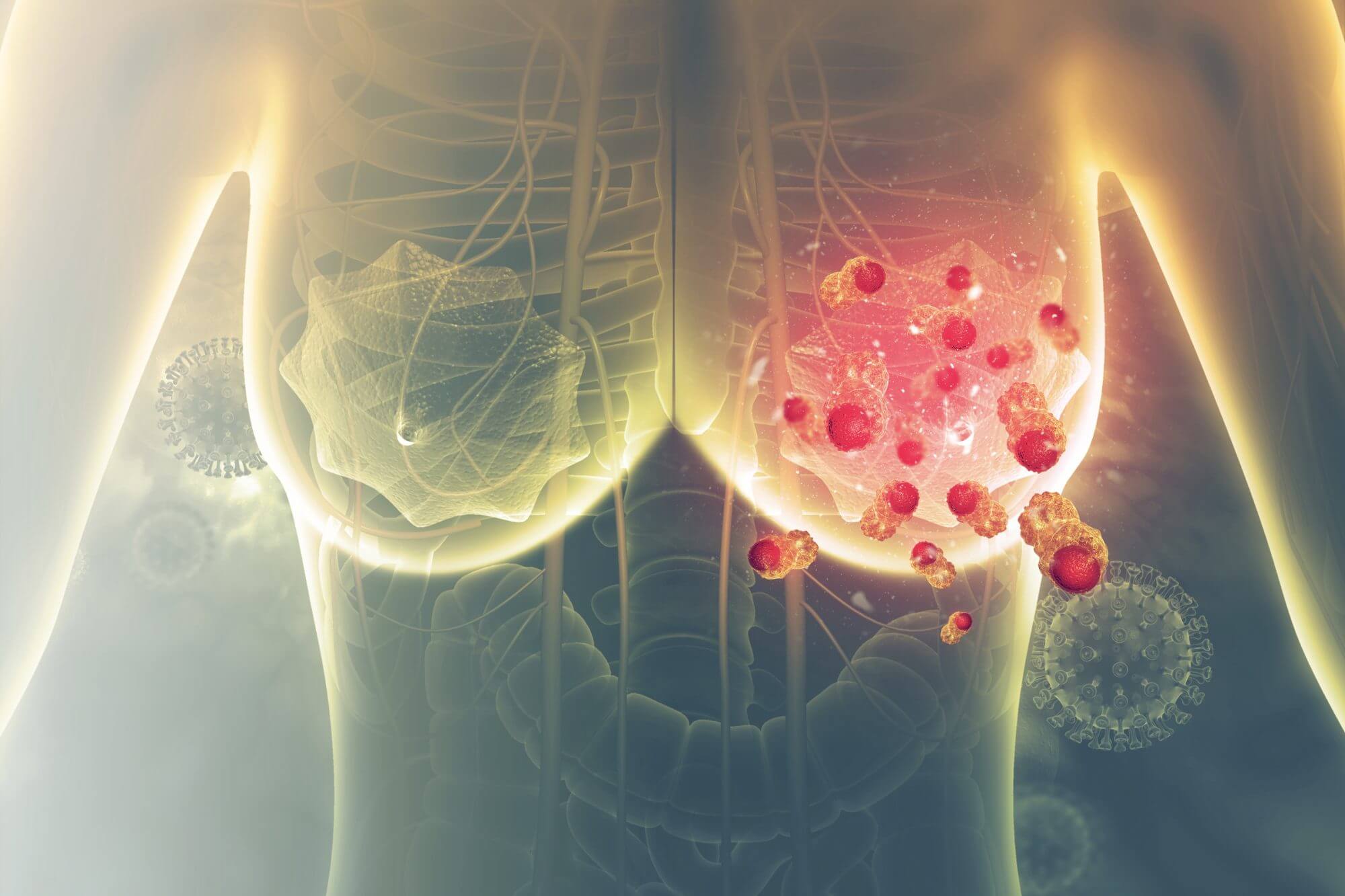

There are more than 48 studies, publications and reviews on Pubmed, Google scholar, Science direct on Tongkat Ali’s effects on cancer which were published from 2005 until 2022.
And cancer patients are opting for plant-based remedies with fewer side effects.
This article will share more insights on Tongkat Ali’s anti-cancer properties, its mechanism of action and the potential use of Tongkat Ali to fight cancer.
Our guide helps you to understand the effectiveness of Tongkat Ali against common types of cancer and whether you should take one if you are a cancer patient.
Data from 48 research studies showed that Tongkat Ali exhibit anti-cancer properties against the following types of cancer:
Tongkat Ali attracts various cancer research activities from around the world due to its strong potential to cure cancer through its anti-cancer activities, safe pathways and mechanism of actions.
According to the latest 2023 review published in the Journal of Public Health Africa, Tongkat Ali (Eurycoma Longifolia) has a track record of success in vitro in the therapeutics treatment for various types of cancers.
The comprehensive review of 48 publications and research studies from 2005 to 2022 suggests the use of Tongkat Ali as a safer alternative compared to the available chemotherapy for cancer treatment.
Although the mechanism of action is not well established, Tongkat Ali contains eurycomanone, eurypeptides, quassinoids and DHOK (dihydroxyklaineanone) which have significant anti-cancer properties against breast cancer (MCF-7), colorectal cancer (SW620), prostate cancer (LNCap), lung cancer (A4549), leukemia, liver cancer and cervical cancer.
This may be a pivotal moment in the cancer research as plant-based remedies open a new frontier for cancer treatments with fewer side effects compared to existing cancer drugs.
Tongkat Ali bioactive ingredients that exhibit anti-cancer properties
Tongkat Ali (Eurycoma Longifolia) showed anti-cancer properties against various types of cancer, including lung cancer, breast cancer, cervical cancer, colon and rectum cancers based on going in-vitro and in-vivo studies.
There are sufficient evidence and studies on Tongkat Ali’s effectiveness in reducing, preventing the formation of cancer cells and causing the death of (i.e killing) cancer cells based on in-vitro and in-vivo tests conducted on humans and animals.
Colorectal Cancer
Tongkat Ali’ bioactive ingredient DHOK (14,15β-dihydroxyklaineanone) showed strong and significant anti-cancer activities; i.e by suppressing the proliferation of SW620 colorectal cancer cells, decreasing cancer cells colony formation, regulating autophagy levels and inhibiting tumorigenesis of colon cancer
Source: PubMed Study PMC 8719673 (PMID 34977014)
Breast Cancer
An in-vitro study published in 2021 showed that Tongkat Ali (Eurycoma Longifolia) leaf extract exhibit antiproliferative cytotoxic activity and induced apoptosis cell death on human breast cancer cell lines (both MCF-7 and MDA-MB-231) without affecting normal breast cells (MCF-10A).
Cervical Cancer
A study published by Forest Research Institute of Malaysia in 2022 reported that eurycomanone and alkaloid compound (9-Methoxycanthin-6-one) in Tongkat Ali showed anti-cancer activity against cervical cancer (carcinoma HeLa) cells. Eurycomanone from Tongkat Ali was found to trigger apoptosis by promoting the up-regulation of p53 tumor suppressor protein followed by the increase of pro-apoptotic Bax protein and the decreasing of anti-apoptotic Bcl-2. This study confirms the effectiveness of Tongkat Ali in preventing the growth of ovarian cancer cells.
Prostate Cancer Cells
A 2013 study showed positive morphological changes of prostate cancer cells (LNCaP cells) when exposed to Tongkat Ali. The significant inhibitory effects against prostate cancer cells were seen at Tongkat Ali concentrations as low as 0.0025 μg/ml TA. The cancer cell death via apoptosis decreased significantly in both 24 and 96 hour treatment of Tongkat Ali at higher dosages (25 and 250 g/ml).
Leukemia Cells
Tongkat Ali methanolic extract showed induction of apoptosis and cell cycle arrest in K-562 leukemic cell lines, suggest the effectiveness of Tongkat Ali in reducing leukemia cells. The in-vivo and in-vitro study published in 2014 showed a fraction of Tongkat Ali extract (classified as TAF273) inhibited the growth of tumor cells in the Tongkat Ali-treated mice compared with the control mice (p = 0.024).
The study further confirms statistically significant induction of apoptosis at 48 hours after the mice was given TAG273 and eurycomanone Tongkat Ali extract, indicating the reduced cancer cells after 48, 72 and 96 hours.
Lung Cancer
Tongkat Ali exhibits anti-cancer properties on lung carcinoma cancer cells (A-549 cancer cells) by activating cytotoxic activities through the induction of apoptosis (programmed cell death) and higher protein synthesis of p53 (tumor suppressor protein).
Mechanism of action
Several studies showed Tongkat Ali’s mechanism of action against cancer work in four ways:
Main Pathway
Tongkat Ali’s action in fighting cancer cells is through the mTOR pathway which regulates autophagy, thus inhibiting cancer growth. Recent study showed Tongkat Ali acts as a mTOR inhibitor, which helps in reducing new formation of cancer cells.
Studies showed that mTOR acts as a central cell-growth regulator, which integrates growth factors, nutrient signals and inhibits autophagy (Kim et al., 2011)
Scientists believed that the activated mTOR supports certain tumor cell growth by promoting protein synthesis (Agostini et al., 2018).
Why mTOR Pathway is important?
As reported in the International Journal of Molecular Sciences in 2019, the mammalian or mechanistic target of rapamycin (mTOR) pathway plays a crucial role in regulation of cell survival, metabolism, growth and protein synthesis in response to upstream signals in both normal physiological and pathological conditions, especially in cancer. mTOR also negatively regulates autophagy.
Cancer patients requires a healthy immune system that produces health cells to fight cancer cells. Diet and supplement may work to ensure continuous production of healthy cells.
Research studies suggest that Tongkat Ali supplementation may help cancer patients to:
Find out more answers on the effects of Tongkat Ali against cancer and how best to use Tongkat Ali for cancer patients and cancer survivors.
DHOK (14,15β-dihydroxyklaineanone) found in Tongkat Ali roots prevents cancer cells colony formation by inhibiting tumorigenesis of cancer through the mTOR pathways. Another human clinical study showed Tongkat Ali increases immune cells (T-cells, CD4+ cells). This suggests that Tongkat Ali may help cancer patients by inhibiting and killing cancer cells through various mechanism of actions and pathways.
Yes, you may take Tongkat Ali after you have recovered from cancer. There are many cancer survivor patients who take Tongkat Ali and other natural supplements to boost the immune system and restore hormonal balance from the side effects of chemotherapy.
It is not recommended to take Tongkat Ali or any natural supplements if you are currently undertaking any form of cancer treatments including chemotherapy or cancer medications. Please consult your nearest cancer specialist or qualified doctor before taking Tongkat Ali.
You may take Tongkat Ali after you have completed your chemotherapy, or as recommended by your doctor. It is advisable to take Tongkat Ali few months after you have stopped taking your cancer medications, cancer drugs or chemotherapy.
Tongkat Ali may not work together with cancer medications as most cancer drugs work by killing cancer cells, i.e a process involving interrupting chemical processes in your body from producing more cancer cells. During that process, cancer drugs may also kill healthy cells that are responsible to boost our immune system. This mechanism of action is directly opposite to Tongkat Ali’s reaction of increasing immune cells such as T-cells, CD4+ cells and Naïve-T cells.
It is recommended not to take Tongkat Ali with any form of cancer drugs. There are no studies to investigate the safety of cancer drug interactions with Tongkat Ali.
Tongkat Ali boosts your immunity system and this is backed by human clinical studies showing improvements in T-cells, CD4+ cells and Naïve cells after 12 weeks based on 200 mg daily dose.
Related article: Tongkat Ali Human Clinical Study on Immune System
You may take Tongkat Ali supplement along with diet and lifestyle changes provided you are not taking any cancer drugs, or undergoing any form of chemotherapy. Please seek professional advice from your nearest doctor or cancer specialist before taking Tongkat Ali.
You should avoid taking Tongkat Ali if you are diagnosed with Stage 3 or Stage 4 cancer. Chronic cancer patients should be treated immediately by doctors or cancer specialists. Please speak to your nearest doctor or healthcare professionals for advice before taking Tongkat Ali.
You may take Tongkat Ali if you are diagnosed with benign tumour. However for cancerous or malignant tumour, it is advisable to speak to a cancer specialist or healthcare professional before taking Tongkat Ali, or if you are currently undergoing any form of cancer treatments.
Patients that fall under the following conditions may choose to take Tongkat Ali under the supervision, or after seeking advice from his/her doctor:
Post-treatment cancer patients are reported taking 200 mg of Tongkat Ali daily along with good exercises, diet and lifestyle changes with no side effects.
Related article: Tongkat Ali Dosage Guide
effective and safer for cancer survivors as it does not contain harmful content from ethanol-based Tongkat Ali extract.
Related article: Clinically Tested Tongkat Ali supplement
The growing list of scientific evidence suggests the potential use of Tongkat Ali to inhibit cancer growth, reduce the risks of cancer from happening and as immune support for post-recovery cancer treatment.
Whilst Tongkat Ali’s pathways are not well established, the mTOR pathway provides a strong indication on the effectiveness of Tongkat Ali’s anti-cancer mechanism of actions.
We are seeing more cancer survivors taking Tongkat Ali supplements to keep their energy, immune system and hormones optimal at all times.
Our customer feedback from a cancer survivor in Australia using Tongkat Ali daily brings us a new hope that one day Tongkat Ali may be the best natural option for cancer patients.
Warning:
You should not consume Tongkat Ali to cure or treat cancer. Further research is required despite positive results on anti-cancer properties based on in-vivo and in-vitro studies. Please consult your cancer specialist or doctors if you are diagnosed with cancer before consuming Tongkat Ali supplements.

Naressa Khan contributes regularly on AKARALI. As a researcher and investigative journalist, Naressa is all about creating, deconstructing, and reassembling meaningful content through words and facts. With this approach always in mind, she eagerly explores the nuances in life via the aspects of lifestyle, culture, travel, health, and wellness in Malaysia .
Our articles are third party reviewed by our panel of experts and medical advisors to ensure the facts are accurate and credible. These are validated against multiple source references which include but not limited to research studies, peer-reviewed journals, pre-clinical studies, clinical tests and other credible publications.
Our panel of medical advisors and experts are highly experienced in their individual fields. However, they do not provide any medical advice or recommendations arising from content published in this article.
Disclaimer:
The content published on this website is for educational purposes and should not be viewed, read, or seen as a prescription or constitute any form of medical advice. We recommend you consult your nearest GP or doctors before consuming Tongkat Ali or any products which contain Tongkat Ali. For further information, kindly refer to our Frequently Asked Questions (FAQ) for more information.
4 Responses
How is the potential use of Tongkat Ali in the battle against cancer integrated into existing cancer treatments? Regard Telkom University
Hi there, tongkat ali anti-cancer properties are limited to in-vitro research activities and currently not integrated into any existing cancer treatments. Cancer patients are advised not to take tongkat ali. However, tongkat ali can be used as a form of anti-cancer preventive supplement that may work to reduce cancer risks associated with high risk workplaces and other external environment/ factors.
Is it safe to take to Tongat Ali as a healthy 60y/o male just for general well being and training.
Somemine saod to me that it has potential to kickstart any sleeping potential tumors.
Hi i had prostate cancer surgery on the 8 of December Last I,m know returning to the gym
is it all right for me to take Tongkat ali